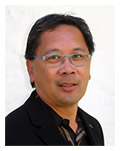#RenoACR2015 3 Hour Sessions: Elder Mediation; Milan Systemic Questioning; Mediator Disability Ignorance; "Thinking For a Change" Group Program
This year’s Association for Conflict Resolution (ACR) national conference features more than 120 speakers on diverse conflict resolution topics in over 75 sessions. Join more than 400 other conflict resolution practitioners this October in Reno, Nevada from October 7-10.
Here is a brief glimpse of some of the three hour sessions that are being offered:
Introduction to Elder Mediation
 Elder mediation is a new and growing mediation practice area. Have you ever thought of adding this practice area? As parents and loved ones age, family disputes often arise over care issues or long term planning. Because the population is aging there will be increased demand for mediators with the necessary experience and skills for this area. This workshop will present the unique qualities of elder mediation practice that practitioners need to understand to gain the necessary skills and knowledge to practice in this area. We will discuss the challenging family dynamics, unusual ethical issues this area presents, assessments of necessary modifications to accommodate participants with disabilities, and safety issues if elder abuse is present.
Elder mediation is a new and growing mediation practice area. Have you ever thought of adding this practice area? As parents and loved ones age, family disputes often arise over care issues or long term planning. Because the population is aging there will be increased demand for mediators with the necessary experience and skills for this area. This workshop will present the unique qualities of elder mediation practice that practitioners need to understand to gain the necessary skills and knowledge to practice in this area. We will discuss the challenging family dynamics, unusual ethical issues this area presents, assessments of necessary modifications to accommodate participants with disabilities, and safety issues if elder abuse is present.
The centrality of the presence of the elder in the mediation will be discussed. Come to this introductory session to learn all about elder mediation. What is it? What are the unique challenges in this area of practice? How does a typical elder mediation case proceed? The presenters will provide an overview of all these issues as well as the basics of starting an elder mediation practice. We will include a mix of presentation, discussion, interaction and a demonstration role play.
Read more: http://reno.acrnet.org/37
Milan Systemic Questioning: Using Hypotheses in Developing Questions

All of the major professions of the world use a Socratic method to understanding their clients, and use some kind of hypotheses testing and formulation. This method of using hypotheses as a way of understanding clients, and understanding the perspective of the mediator/clients in a systemic perspective, has been taught in at least 25 different countries. Moving from the model of ‘thinking about my clients thinking’ to incorporate the mediator ‘thinking about their thinking’ the mediator moves towards a second order cybernetic perspective of understanding change.
Read more: http://reno.acrnet.org/13
Disability Ignorance and the Unaware Mediator: Understanding Your Legal Obligations to People with Disabilities
 Unbeknownst to many mediators, people with disabilities participate in mediations that are not fully
Unbeknownst to many mediators, people with disabilities participate in mediations that are not fullyaccessible to the individual. Regardless of your mediation practice, mediators are legally obligated under the American’s with Disabilities Act (ADA) to accommodate people with disabilities and make their session accessible. This session sheds light on the ADA Mediation Guidelines and raises awareness of how visible and hidden disabilities can impact participation and communication. Finally, attendees will learn key steps to prepare parties and make process accommodations to maximize participation.
Read more: http://reno.acrnet.org/39
Expanding Your Practitioner Toolbox: An Introduction to the Evidence-Based "Thinking for a Change" Group Program
Thinking for a Change (T4C) is an evidenced-based program that has been used with offender
populations since 1998 to reduce recidivism. An integrated cognitive behavior change program, T4C teaches social skills, cognitive self-change, and problem solving skills. The program’s philosophy is that individuals can take control of their lives, including maximizing positive responses from others and minimizing the negative, by learning how to take control of their thinking. During this session, you will gain an introduction to the program and explore how its philosophy and tools can be used in a variety of ways to enhance your conflict resolution practice.
Read more: http://reno.acrnet.org/41
Register for the conference [HERE]
About
@ADRHub Tweets
© 2025 Created by ADRhub.com - Creighton NCR.
Powered by
![]()
You need to be a member of ADRhub - Creighton NCR to add comments!
Join ADRhub - Creighton NCR